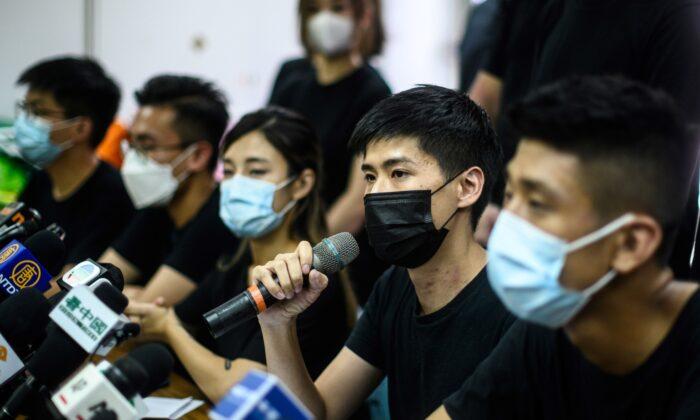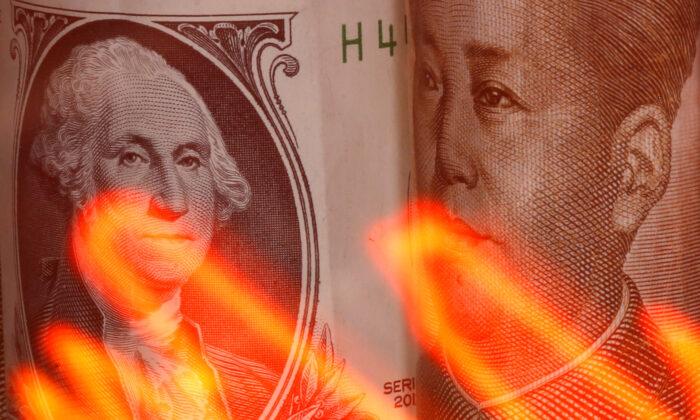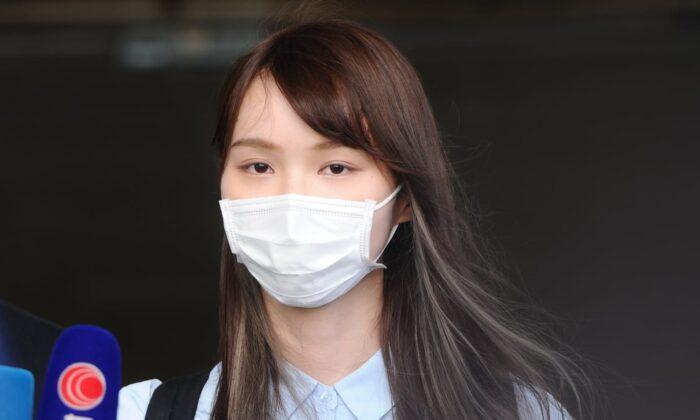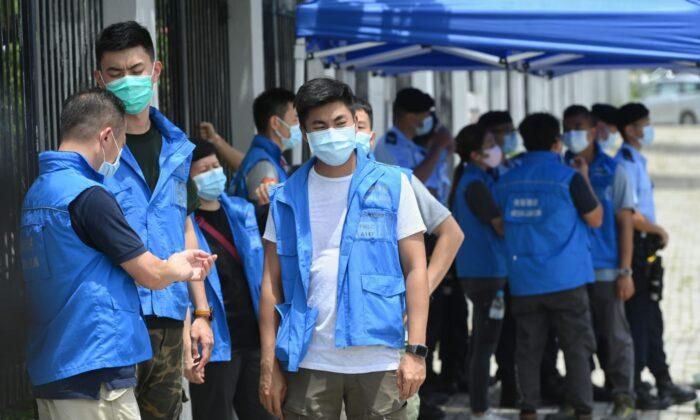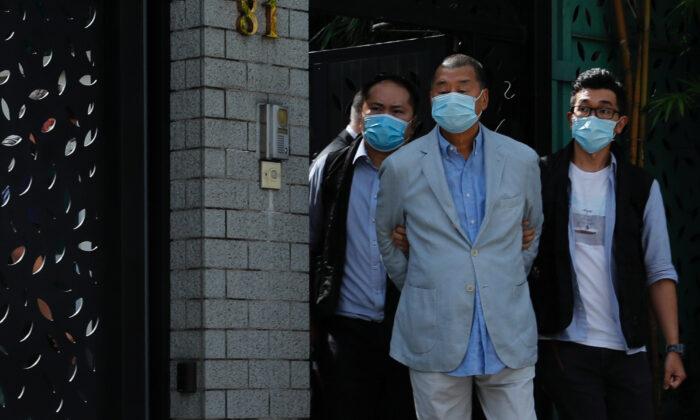Hong Kong’s million people marches, scenes of tear-gas engulfed street standoffs, and multi-day University sieges are gone to rest. Hong Kong’s protest is changing with the times.
Two main factors influence the change: The Chinese Communist Party’s (CCP) threatening National Security Law and the increasing tensions between China and the United States.
These recent turns bring a new wave for Hong Kong’s pro-democracy fight as protestors adapt to fight for their autonomy in a newly emerging environment.
The enactment of the new National Security Law in Hong Kong by China’s rubber-stamp legislature was passed with a comprehensive 66 articles that criminalize acts of succession, subversion, terrorism, and collusion with foreign forces.
The laws are both vague while promising of stern punishment. The maximum sentence under the law is life in prison, while the prerequisite for charges seem to be anything that displeases the Chinese regime.
The laws unroll a barrage of what the government can do to anyone suspected as a threat to national security. Mere suspects can be wire-tapped and put under surveillance. Management of non-governmental organizations and news agencies will be fortified. Those deemed guilty will not be allowed to run for public office. Suspects will be tried under a special committee led by the regime and the law applies to everybody, in and out of Hong Kong.
Despite the panoramic provision, Hong Kong Chief Executive Carrie Lam asserts the National Security Law only targets a small group of extremists. Yet, her actions clearly show otherwise.
The law was passed on July 1. Since then, Hong Kong’s government has continued to criminalize specific rights under the National Security Law.
The popular slogan, “Free Hong Kong, Revolution of Our Times,” is illegal under the National Security Law.
People were arrested under the law for having stickers that say pro-Hong Kong independence slogans such as, “Free Hong Kong” or “Hong Kong independence.”
The Hong Kong and Chinese governments have been piling on statement after statement in tandem to suffocate the pro-democracy movement. It has had a tangible effect on the protest movement.
“It feels like we’re walking into a darkness, but we don’t know what is the end,” said 23-year-old Theresa to the Epoch Times Hong Kong on July 1. (The name is an alias for safety concerns). “Right now, we are just finding new ways to protest while staying alive under this new law.”
But while protest voices have gone quieter, they have not gone silent.
On July 12, Hong Kong’s pro-democracy camp held its first-ever election primary. A move made to strategically consolidate Hong Kong’s votes into the best candidates for the Legislative Council (LegCo) election this upcoming September. It’s part of a strategy to secure a pro-democracy majority in the Legislative Council, a plan called “35 plus.”
But Lam declared 600,000 Hong Kong residents who voted in the primaries as potentially having broken the National Security Law.
“Our vote is our voice to the global community. Under the chilling threat of Beijing, we choose not to surrender,” Joshua Wong declared amid a stronghold of black-clad nominees at the first press conference of pro-democracy nominees.
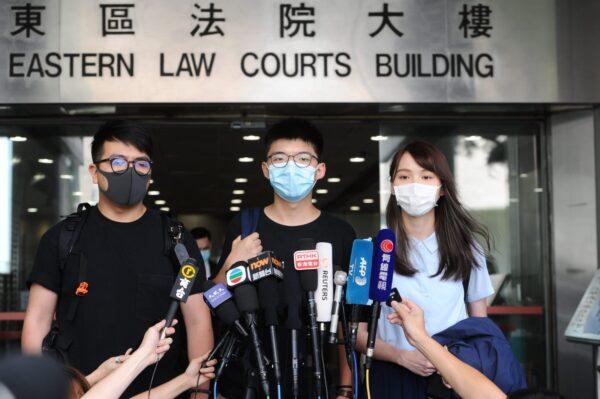
With no external considerations, the regime can generally do whatever it wants. Usually, that means disqualifying any displeasing candidates. But this year, the United States is watching the elections closely. This key development has shaped Hong Kong protestors’ strategy for democracy.
Shortly after Carrie Lam threatened punishment under the National Security Law for participation in Hong Kong elections, Trump signed a law to revoke Hong Kong’s special privileges. Secretary of State Mike Pompeo released a statement condemning Lam’s condemnation, warning that the United States will be watching Hong Kong election developments closely.
Under these conditions, the energy of the protests now moves on to the anticipated election for Hong Kong’s Legislative Council.
A subset of 16 of the nominees slated to fight for election this fall have named themselves the protest camp, also known as the localists. They represent youth for democracy in Hong Kong and are much more defiant against the CCP than traditional pro-democracy legislators. All but one are under 30 years of age.
Despite the identical goal of democracy for Hong Kong, there is contention among the older pro-democracy activists and the newly-emerged youth activists. The older camp has been active in government since the 1997 handover, while the youth activists were born around the 1997 handover.
Their main contention is on compliance with the CCP. Older legislators tend to compromise with China. The protest camp is much more defiant of the CCP’s wishes.
“We believe the traditional way adopted by the old politicians is not useful and quite pointless during this era,“ said Sunny Cheung, 24. He has turned down a chance to study for a master’s degree at Johns Hopkins University to ”resist the evil regime” according to Reuters.
“With the crackdown from Beijing, we have no room and any chance to have any fragmentation. It’s time for us to enhance solidarity,” urges Joshua Wong.
The recent primaries show voters’ frustration with Hong Kong’s moderate, more traditional pro-democracy politicians.
Final data from the primary election is yet to be released. But approximate numbers show the protest camp dominated popular votes, signaling the desire for more hardline fighters for Hong Kong democracy against the CCP to represent them in the Legislative Council. It signals that even with the new National Security Law, Hong Kong protestors want to continue the fight.
“I hope that the new generation can respond to the angry roar of the times and resist in the Legislative Council with new methods and ideologies,” said incumbent democratic lawmaker Helena Wong, 61, to Reuters. Wong did not win a nomination for September’s election.
Veteran democratic candidates such as James To, Lam Cheuk-ting, Gary Fan, and Alvin Yeung all performed poorly, with their moderate call for democracy no longer appealing to young voters.
At the press conference for the protest camp, a reporter asked Eddie Chu, a current member of the Legislative Council, on why he was there. He’s the only protest camp member older than 30.
Until the direct question from a reporter, he’d remained silent through the entire press conference. He stood in the corner, wearing a black T-shirt that read “I’m free, therefore I am.”
“I’m a 40-something year old. I’m very grateful to be able to join these 20-somethings in this new wave of pro-democracy legislators for Hong Kong.” Chu, an established environmental activist, has served in Hong Kong’s LegCo since 2016.
Decades of Struggle
Hong Kong’s short history as a semi-autonomous region of China is rife with eras of protests.In 2003, the fight was against Article 23 security laws. In 2014, historic umbrella protests and the emergence of student leaders lead the fight against mainland China’s curriculum in Hong Kong’s education system. In 2019, another powerful era of youth captivated international attention with their days-long standoffs with riot police on smoke-engulfed streets.
As the tear gas evaporates, the defiant spirit against the CCP grows stronger. This new form of protest via highly public participation in the election dares the CCP and the current Hong Kong government to do exactly what the candidates know they want to do: shut down Hong Kong democracy.
The United State’s strong support for Hong Kong autonomy gives Hong Kong protest leaders the backing needed to go head to head with Beijing. With stiffening U.S.-China relations, there’s a lot on the line for China.
If the regime disqualifies popular pro-democracy candidates, as they did in the past, they will very publicly reveal that injustice of Hong Kong elections, warranting retribution from the United States under the Hong Kong autonomy act—as well as condemnation from the international community. If they allow the candidates to serve in LegCo, they risk losing control of Hong Kong’s government by allowing a pro-democracy majority in Hong Kong’s legislative council for the first time in history.
The protest camp is also betting on the Hong Kong majority signaling support for pro-democratic candidates. Joshua Wong warns “if the government cracks down on us and disqualifies all the candidates who joined the primaries, it will cause more outrage in the international community and encourage more people to vote for the pro-democratic camp in September.”
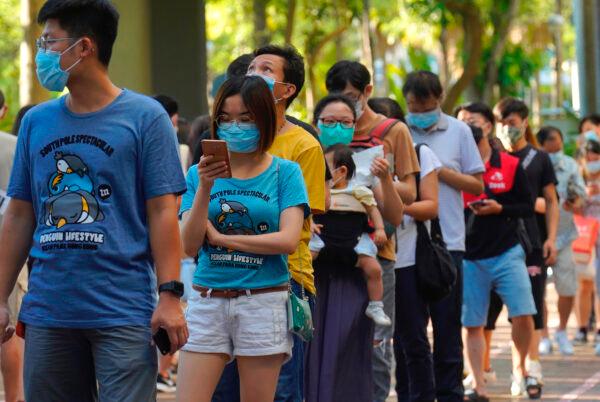
Despite the regime’s authoritarian clampdown with the National Security Law, Hong Kong protestors have adapted the energy of the past year of protests into fighting through the upcoming elections. They have vocally elected younger, hardline, anti-CCP leaders to represent them, strengthened by America’s backing of Hong Kong autonomy rights amid stiffening U.S.-China relations.
Owen Chow, a 23-year-old Hong Konger who ran in the Democratic Primaries, won 16,758 votes, securing the nomination for the LegCo election. He told Reuters, “we’ve entered an era of change.”
As U.S.-China relations morph, so are Hong Kong’s unrelenting protestors in their fight for freedom against the CCP.
